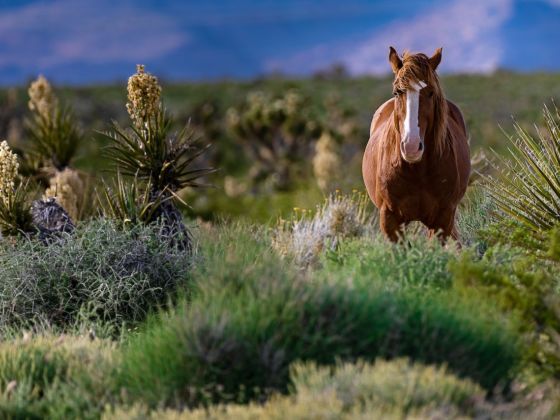IT’S A FAMILIAR SIGHT OUT WEST: wild American mustangs. They seem to be the perfect symbol of the American west — free, wild, and powerful.
But to many ranchers and cattle owners across swaths of Nevada, Colorado, Utah, Montana, Wyoming, and California, the sight is an unwelcome one: wild horses take up space, forage, and water that they could be using for cattle. There are currently 33,780 wild horses and 6,825 donkeys roaming 250 million acres of public land managed by the Bureau of Land Management (BLM) and the US Forest Service. Some of this land is shared with the cattle ranchers.
According to the BLM’S cattle program, ranchers pay $1.35 per cow per month to graze on BLM land (compared with $17 per month on private land). Ranchers claim that wild horse herds are overpopulated and degrade cattle grazing land, and are imploring the BLM to take action. Right now, it’s hard to say what the cause of the land detriment is, especially considering record droughts and the questionable sustainability of either species.
